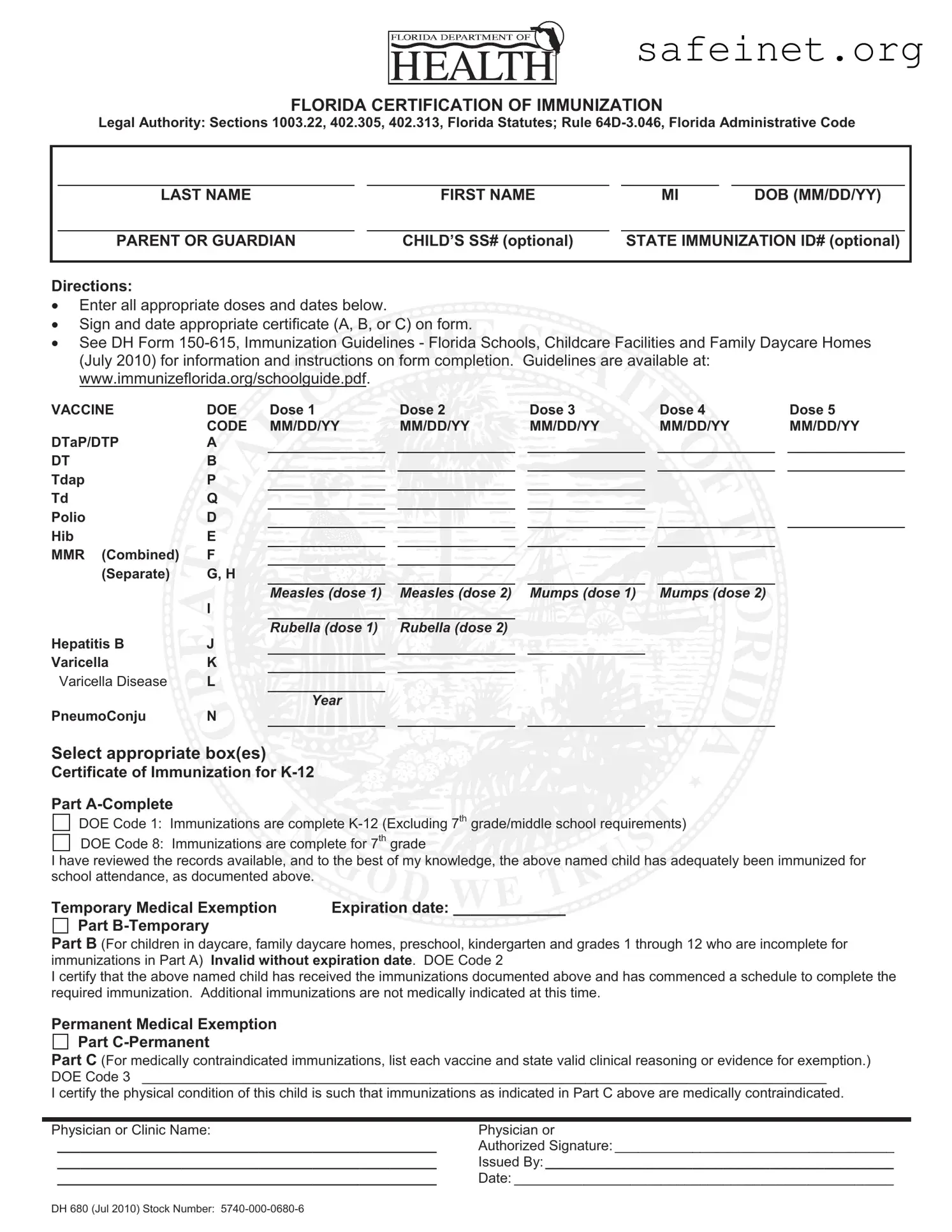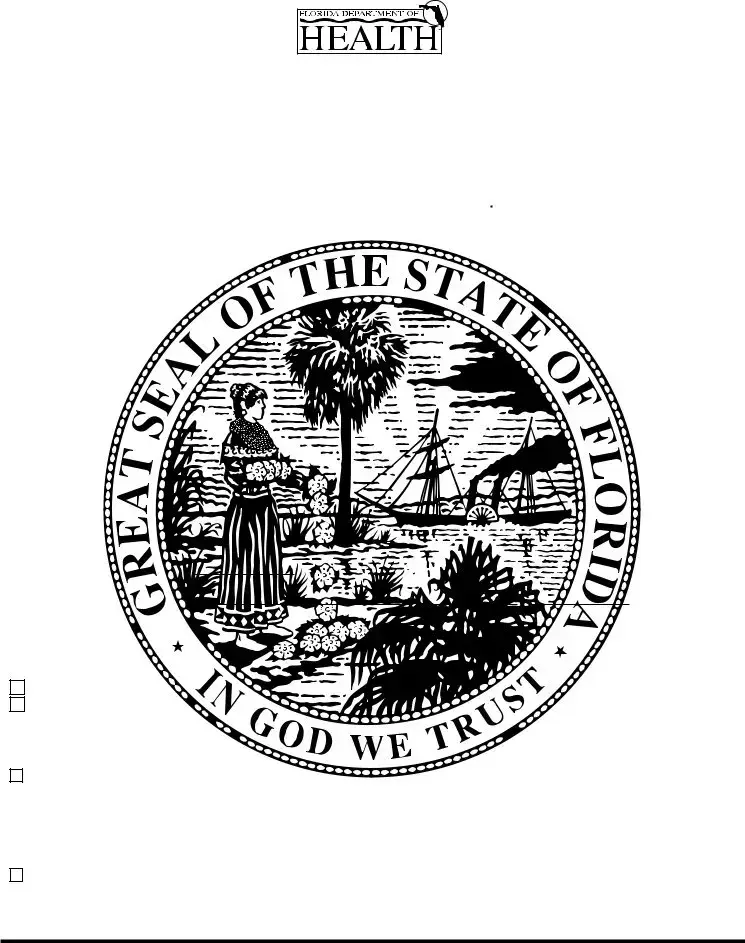What is the purpose of the Florida Certification of Immunization (680 form)?
The Florida Certification of Immunization, commonly known as the 680 form, is used to document a child's immunization status for school and childcare purposes. This form verifies that a child has received the necessary vaccinations as required by Florida law and ensures compliance with school enrollment regulations.
Who needs to fill out the 680 form?
The 680 form is required for students entering K-12 schools in Florida, including new students and those moving up to the 7th grade. Additionally, children attending daycare or preschool may also need to submit this form to confirm their immunization records.
What information is required on the 680 form?
The form asks for details such as the child's full name, date of birth, parent's or guardian's name, and optional sections like the child's Social Security number and State Immunization ID number. It also includes a section for recording the dates of each vaccination received.
What are the three parts of the 680 form?
The 680 form consists of three parts:
- Part A: Certificate of Immunization for K-12, used for verifying completed immunizations.
- Part B: Temporary exemption for children who have not completed their immunizations but have started the process.
- Part C: Permanent medical exemption for children with valid clinical reasons for not receiving specified vaccinations.
How can parents obtain the 680 form?
Parents can obtain the 680 form from their child’s healthcare provider, local health department, or educational institution. It may also be available online through the Florida Department of Health's website. It's crucial to ensure that the form is the most current version for accuracy.
Can a child be exempt from immunizations?
Yes, there are two types of exemptions available on the 680 form. A temporary exemption can be granted for children who are in the process of completing their vaccinations. A permanent medical exemption can be issued if there are valid medical reasons for not receiving certain vaccines, as documented by a qualified healthcare provider.
What vaccinations are typically included on the 680 form?
The 680 form includes various vaccines such as DTaP/DTP, Polio, Hib, MMR (Measles, Mumps, Rubella), Hepatitis B, Varicella, and Pneumococcal conjugate vaccine. Specific requirements can vary based on the child's age and the grade they will enter.
How often does the 680 form need to be updated?
The 680 form should be updated whenever a child receives new vaccinations or if there are changes in their exemption status. For example, if a temporary medical exemption expires, a new form may be needed to reflect updated immunization status before school enrollment.
Where can I find more information about completing the 680 form?
Detailed information and guidelines for completing the 680 form can be found on the Florida Department of Health website and through resources like the Immunization Guidelines for Florida Schools. Additional questions can be directed to local health authorities or school administrators.


 or C) on form.
or C) on form.










 box(es)
box(es)
 K-12
K-12 are complete for 7
are complete for 7 and to the best of my knowledge, the above named child has adequately been immunized for school attendance, as documented above.
and to the best of my knowledge, the above named child has adequately been immunized for school attendance, as documented above.

